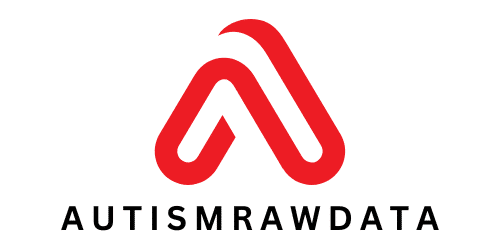Blockchain technology, originally associated with the financial industry, has recently found a new application in an unexpected and yet, equally significant sector – food traceability. In the UK, the food industry is incorporating blockchain data into the supply chain to ensure product safety, improve transparency, and build consumer trust. This revolutionizing process reaffirms the critical role of technology in the modern world.
Blockchain in the Food Traceability System
Blockchain is a time-based system that records data transactions in a chain-like form, ensuring that information is traceable, immutable, and transparent. In the food industry, these features can help track food products from farm to table, enhancing safety and confidence in the system.
A découvrir également : How to Create an Effective Carpooling Network for UK’s Commuters?
Food traceability has been a critical issue in the food industry, with consumers demanding more transparency about the products they consume. They want to know where their food is coming from, how it was produced, and whether it adheres to safety standards. Blockchain can provide these answers by offering a comprehensive and reliable data system that traces food products in real-time.
Integration of Blockchain with Google Technologies
Companies in the food industry are finding their ally in technology giants like Google who are providing blockchain-based solutions to address traceability issues. Google is developing technology that allows companies to input, store, and access data about their products in the blockchain.
Sujet a lire : What’s the Impact of Interactive E-books on Childhood Literacy in the UK?
With Google’s blockchain technology, companies can trace their food products’ journey throughout the supply chain. Every time the product changes hands, the data is recorded in the blockchain, creating an immutable record of the product’s history. This allows companies to quickly identify and resolve any issues, such as food safety concerns or supply chain inefficiencies.
Consumer Benefits from Blockchain Food Traceability
The use of blockchain in food traceability is not only beneficial for companies but also for consumers. The transparency provided by blockchain technology gives consumers the information they need to make informed decisions about the food they consume.
When you scan a product with your smartphone, it can provide data about the product’s journey – where it was grown or produced, how it was processed, and how it got to your local store. This level of transparency can help you decide whether to buy a product or not, based on your personal preferences or dietary restrictions.
The Industry Perspective: Embracing Blockchain for Food Traceability
From an industry standpoint, the adoption of blockchain for food traceability comes with numerous benefits. It can improve efficiency, reduce waste, ensure compliance with regulations, and enhance customer relations.
With blockchain, companies can figure out where in the supply chain a problem occurred, which can save time and resources in investigating food safety incidents. Moreover, it can help companies prove their compliance with food safety regulations, which can be instrumental in building trust with consumers and regulatory authorities.
Challenges and Future Prospects
While the integration of blockchain in food traceability holds promise, it is not without challenges. Issues such as data privacy, interoperability with current systems, and scalability need to be addressed for widespread adoption.
However, with technology companies such as Google offering blockchain solutions, and the industry’s willingness to embrace this technology, the future of blockchain in food traceability looks promising. The UK’s food industry may well be on the cusp of a blockchain revolution, promising safety, transparency, and efficiency in the food we consume.
Blockchain and AI: A Potent Combo in Food Traceability
The incorporation of blockchain technology in the food industry is a game-changer, but when combined with Artificial Intelligence (AI), it offers unprecedented possibilities for food traceability and safety. AI, with its ability to make sense of vast amounts of data, is an ideal companion to the transparency and immutability offered by the blockchain.
The integration of AI with a blockchain-based food traceability system can automate the process of data collection and analysis. AI algorithms can sift through the data collected in the blockchain, scanning for anomalies or inconsistencies that could indicate potential problems in the supply chain. It can help identify patterns and trends, enabling companies to anticipate and address problems before they escalate.
In addition, the insights gained from AI can be instrumental in enhancing the efficiency of the supply chain. For instance, AI can predict demand based on factors like seasonal trends and market conditions, enabling companies to manage their inventory more efficiently. This can lead to significant cost savings and reduction in food waste, which is a major concern in the agri-food industry.
Moreover, AI can complement the blockchain’s capabilities in ensuring data privacy. By implementing smart contract functionalities, specific rules and conditions can be set for accessing and sharing data. This can help address one of the major challenges in the use of blockchain in food traceability – data privacy.
In essence, AI can enhance the capabilities of the blockchain-based food traceability system in ensuring food safety, efficiency, and compliance in the supply chain, taking the concept of ‘farm to table’ to a whole new level.
Conclusion: Towards a Future of Trust and Transparency in the Food Industry
The integration of blockchain technology into the UK’s food traceability system represents a significant leap forward in ensuring food safety, transparency, and trust. By providing a real-time, reliable, and comprehensive view of the food supply chain, blockchain technology can alleviate many of the issues that have long plagued the food industry.
The integration of technologies like Artificial Intelligence with blockchain offers even more possibilities, from automating data analysis to predicting demand and ensuring data privacy. While challenges remain, the commitment of major technology companies like Google and the willingness of the industry to embrace this technology bode well for its future.
While the full potential of blockchain in food traceability is yet to be realised, the initial results are promising. The integration of blockchain is not just transforming the food industry in the UK, but reshaping the landscape of global food supply chains. It’s poised to instil a new level of trust, not just in the food we consume, but in the systems and processes that bring it to our tables.
As we move forward, the role of technology in ensuring food safety and traceability will only become more critical. With blockchain at the forefront, the future of the food industry promises to be one of enhanced trust, transparency, and efficiency.






